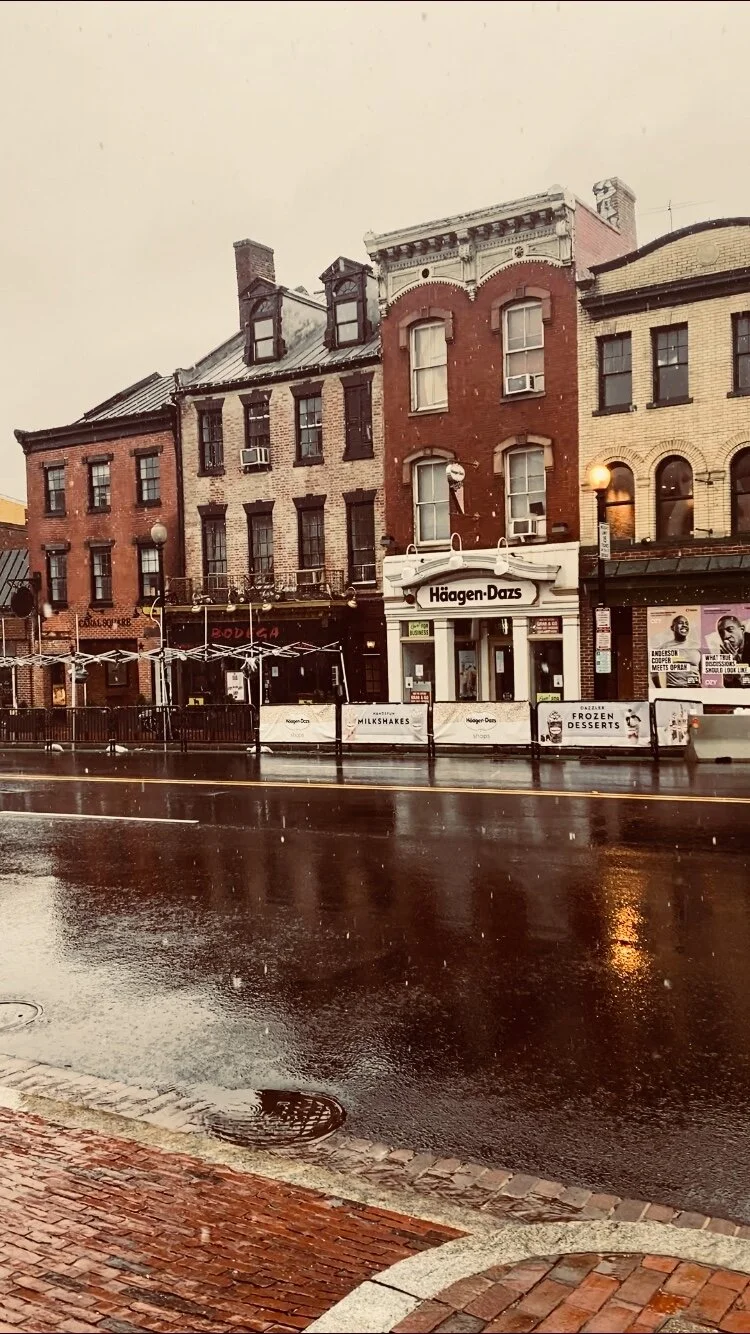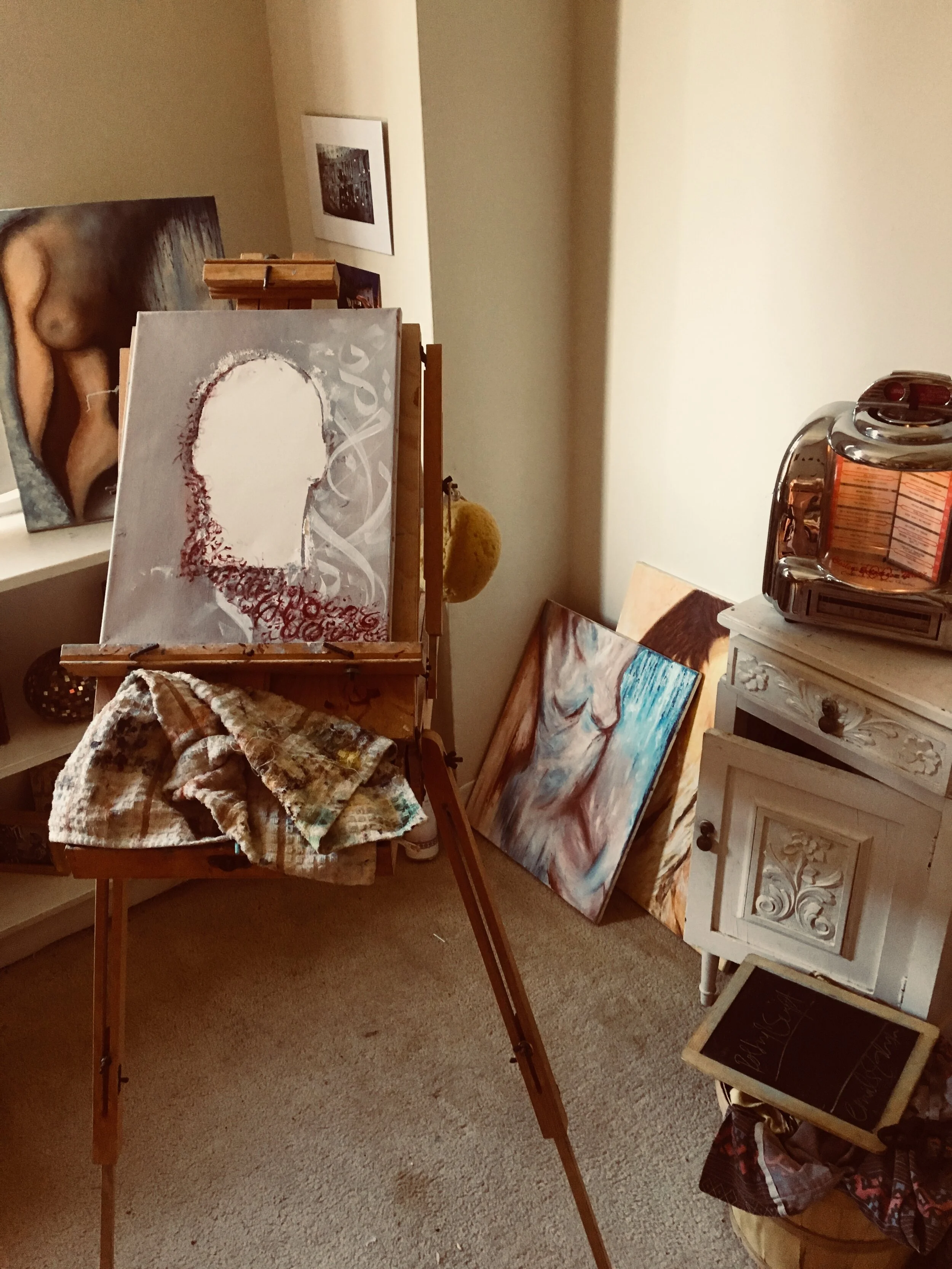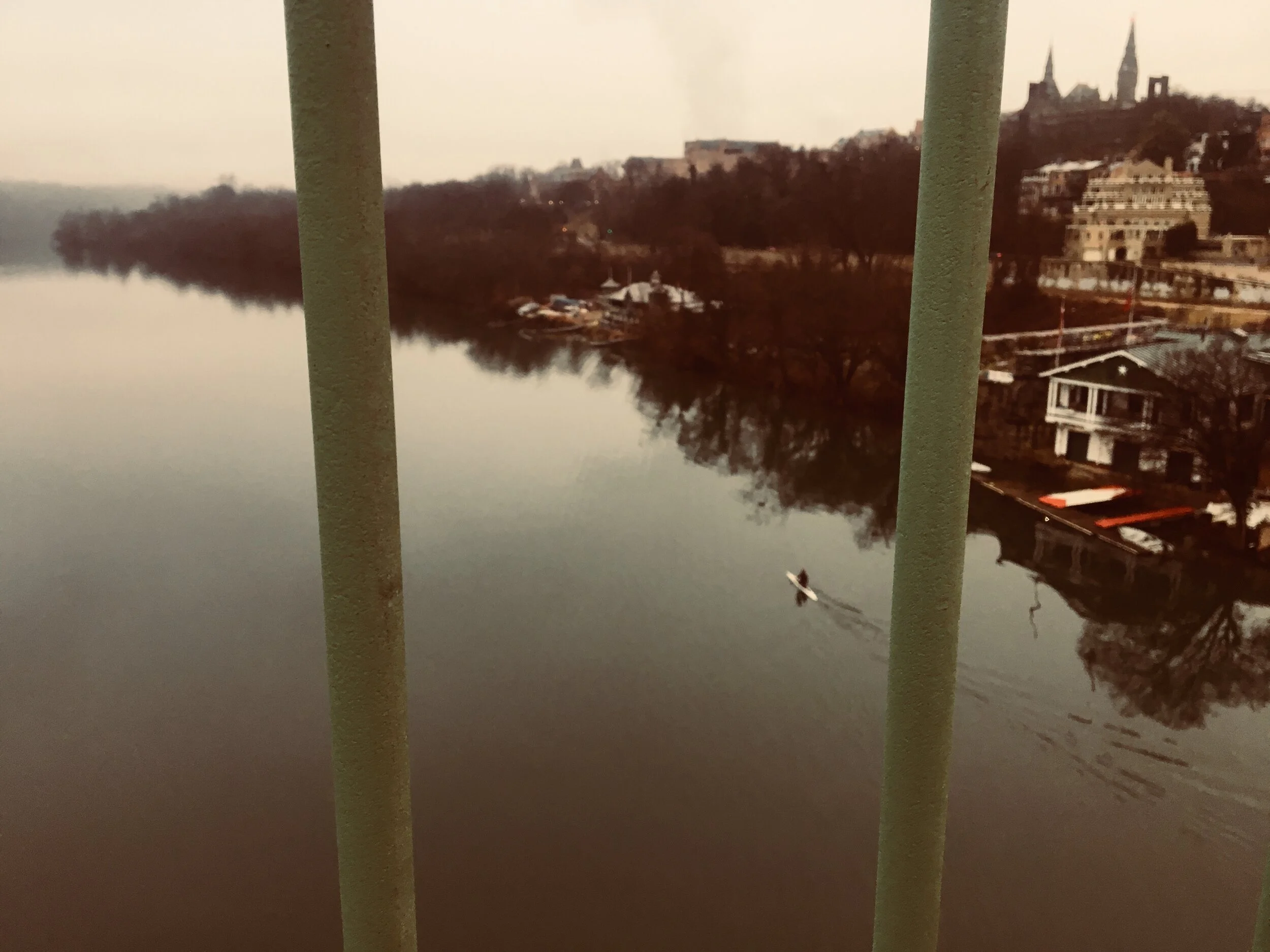Sundays Without Dakota
“After all, perhaps the greatness of art lies in the perpetual tension between beauty and pain, the love of men and the madness of creation, unbearable solitude and the exhausting crowd, rejection and consent.
Create Dangerously, Albert Camus
A new Sunday
It's quiet. There was snow in the morning, large, soft masses of white. None of it held against the ground. If you looked up, it was beautiful. If you looked down, it was wretched.
I stayed indoors for most of the week. I took long walks around sunset over the bridge. I worked on my poems, my paintings. I took another try at a script that still refuses to lend itself to anything final . I spent hours crying, thinking, working through so much pain. I'm not sure how I managed to fall out of love twice in one year, but it happened, and here I am, on a Sunday afternoon, sitting by the windowsill, feeling like there's so much to say, and nothing at all. I want the company of silence. I want the company of a tender listener too. I want love, but I want the solitude just as much.
I wonder what passes through the mind of my neighbors on this Sunday. My window's at a corner, and there's a row of windows to my right. The view is nothing flatering, but the windows are large and bring in a beautiful color of light into the room. One woman stands in her bra by the window, looking out. The blinds are pushed aside, slightly. Our windows are so close. I try to give her her privacy, but I wonder if she sees me too.
I want to know what one does on a quiet Sunday, alone, no phone, no laptop, just the body and the room it fills. It took me years to separate the mosque from my own Sundays. For years, they still touched, still reminded me of those endless afternoons when my father would force me to stay there. I'd sit there for hours, bored, envious of the others my age who I imagined living through far more eventful and rebellious Sundays. Only recently they’ve stopped baring the scent of a mosque. I no longer feel that mortal, insistent tick-tock of the clock measuring the minutes between prayers. My Sundays stand apart: new, empty, stripped of the past, waiting to be filled...with what?
I painted, but it didn't feel like the right answer to Sunday's question. The what...what is it really? For what, another week, another Sunday?
“On the ridge where great art moves forward, every step is an adventure, an extreme risk. In that risk. however, and only there, lies the freedom of art.”
Create Dangerously, Albert Camus
To kill the clock-man
It's not mortality that bothers me anymore. It's not the clock I want to fight, or the years I want to beg for. I trust that I have enough. But it's how the time passes, the restain that leaches every hour of its pleasure. The fear and the hurry that have become as much a part of me as my body. I could spare the clockman. But it's the habit I want to kill, the other "I" who stands with a bucket under the rain, collecting hours and never resting because it's never enough. I want the "I" that plays in the rain of time, who jumps in the puddles, loses herself in the avenue of a million others with their buckets. I want her to laugh when she's offered one. I want her to answer the man standing outside the mosque, urging her to come inside and meet Him. I want her to shed her coat in the rain, turn to him bare-headed, her dress short and soaked, and say, "I'd rather look for him instead."
All along I thought what I'd been doing had been wrong. No, it's how I've been doing it, the traveling, the writing, the painting, the filming, the time I spent with the ones I love, and with strangers. There has always been this crushing sense of hurry, of pressure, of perfectionism and performance. I have never allowed myself to be messy, never given myself permission to do the things I was not allowed to do when permission was a thing someone else carried for me. And what is an artist but a person who has cut every chord that’s been tied to her wrist over decades, who understands that to be an artist in the highest, truest sense is to be a child. To be an artist and to do art professionally are two vastly different things. How then, do I choose to be an artist and also to be taken seriously? Is there a way to occupy both spaces, or does one reject the other? And if art is a way of life, and that way demands the killing of everything that tries to bend it into something serious, timed, and outcome based, how can I choose that life without a complete and sincere rejection of everything that attempts to professionalize it?
I am starved of the pleasures of what I do. And I crave it more than anything, that ability to lose my self in the work I love, to say the hell with anyone's opinion and allow my hands to shape each hour on their own. It's nothing impractical. My body has always done a better job with the truth than I have. I trust it, more than I could ever trust my mind, which has led me wrongly so many times and held me down in places my body was desperate to leave. I want my hands to decide the course of my life as an artist, and if its leads me away from the crowds, so be it. In so many times of doubt, my body knew the answer well before I did, sometimes, years before. And if I'd listened to it earlier... But it's not too late. If I can just manage to work myself out of two decades of habit, if I can fight back against years of perfectionism, hurry, and pressure, all of which once helped survive and are now slowly killing me, then maybe, I have a chance to answer to the image of the artist I've carried with me all these years.
“Art lives only on the constraints it imposes on itself. It dies of all others.”
“Art is reduced to nothing. It serves, and by serving, becomes a slave.”
Create Dangerously, Albert Camus



